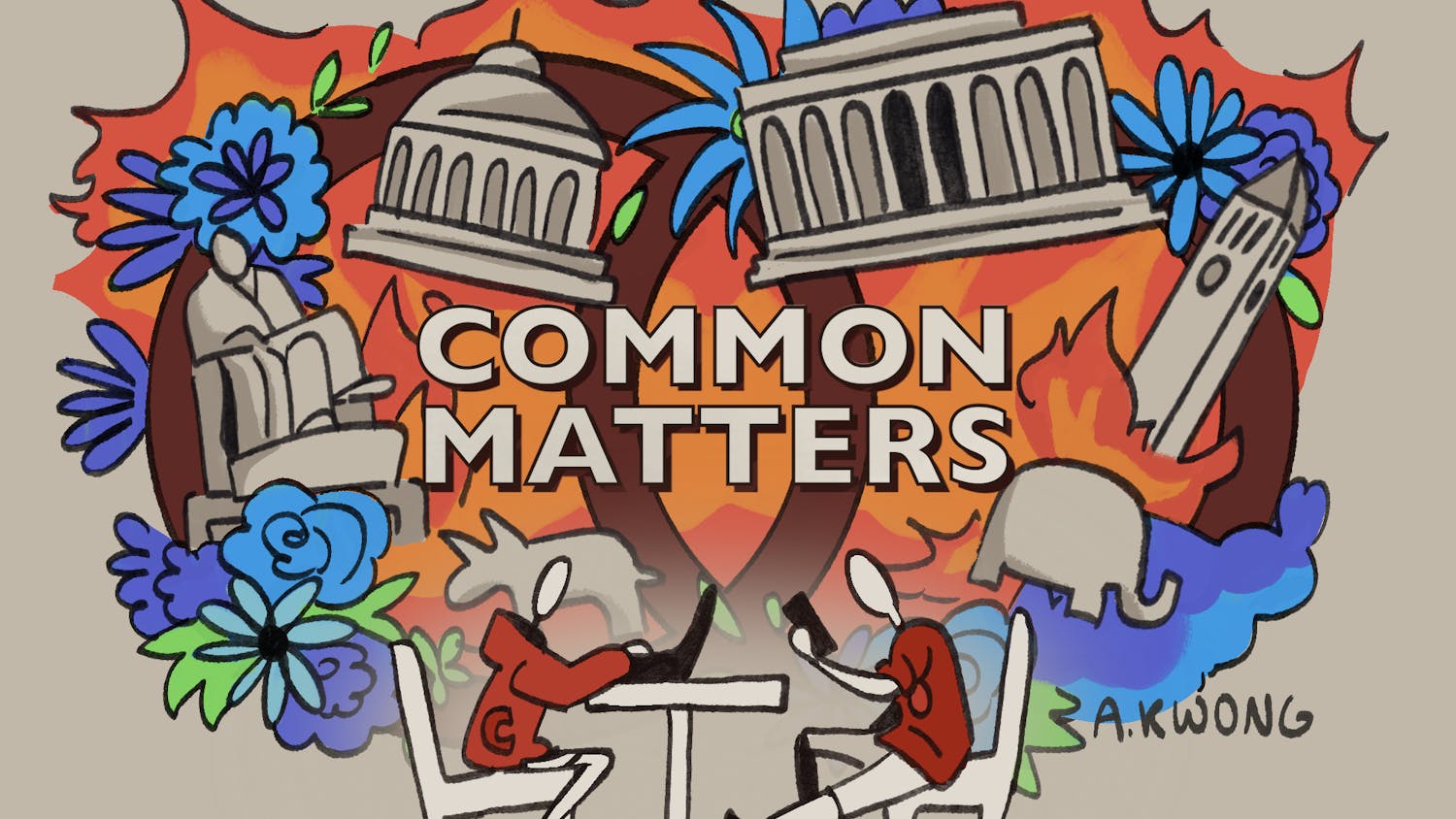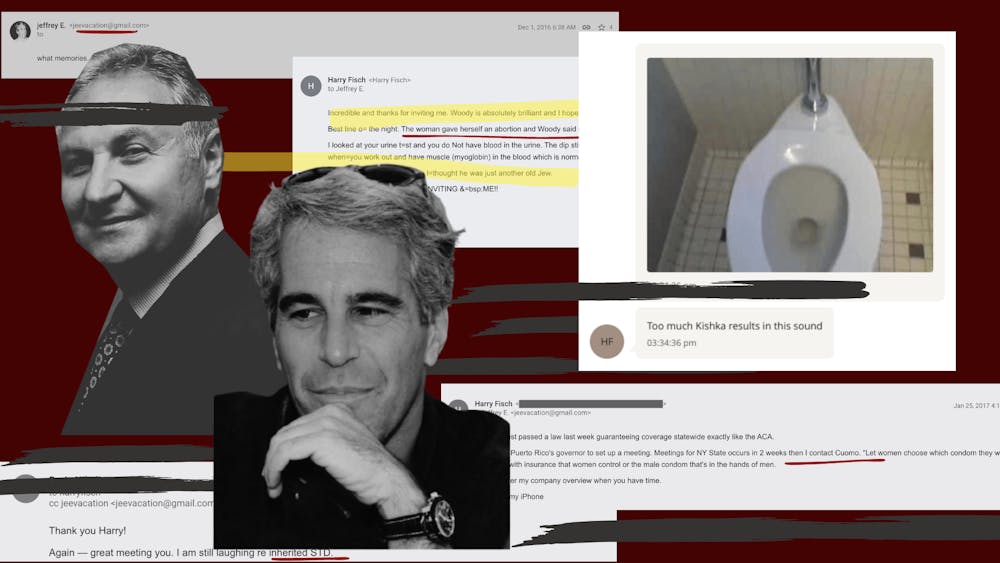For the last two weeks the Cornell community, and the entire world, has witnessed as the Middle East has burst up into war. As President Joe Biden mentioned in his Oval Office address on Oct. 19, the Israel-Hamas conflict can seem distant. But as many Americans and Cornell students, faculty, staff and alumni understand: This conflict is an inflection point on the growing threat to countries, their democracies and to the lives of innocent human beings. As of Oct. 21, at least 5,000 individuals have been killed and more than 17,000 have been injured in the enclave since Oct. 7.
For the Cornell community and beyond, the war in the Middle East has become one of the most emotionally divisive issues in recent decades. As an institution that nests a premier staff of experts in every field and students with the conviction to change the world, people turn to us to parse through the issues that divide us in the modern century, past and present. They seek for us to aid in finding the answers against hatred; against terror and murder; perhaps, the language that can help us understand the rhyme and reason behind war.
And we try: At Harvard, students and staff have professed their views, yet not without repercussions. At the University of Pennsylvania and Stanford, students for and against Israel have voiced their grief and their anger. At Cornell we’ve held vigils for both Israeli and Palestinian lives lost — a message we send that is rather mournful, silent. But even in our best attempt, we fail to truly capture the magnitude and complexity that is a war. It follows that the atmosphere of war is deadly not only to human life, but also to the very language that we’re used to: Our speeches and our chants cannot completely capture the lives we’ve lost while attempting to fully historicize the war that took them. Every shooting war is also a war between competing narratives. As a consequence, individuals who have spoken out have been threatened, injured or killed. It is concerning that our language, in the atmosphere of war, in order to preserve the very dignity and humanity of mankind, we fear must actually come to an end. But we cannot let this be the case.

Just last week one of our professors, Prof. Russell Rickford, gained national attention for his public speech regarding the Hamas invasion into Israel, where thousands were killed and injured. Our reporters and journalists at The Cornell Daily Sun covered the event and spoke to Professor Rickford regarding his statements, who has now taken a leave of absence from the University. In the aftermath, students, faculty and alumni have villainized and threatened not only Rickford, but our journalists and the journalistic integrity we uphold to the highest standards and practice at The Cornell Daily Sun.
Rickford’s statements unjustly glorified a terrorist group’s actions as a means to defend the rights of the Palestinian people. Violence and terror should never have been the answer. And it is clear now, more than ever, that Israel cannot win this war against terrorists solely by killing and dismantling the violence, terror and power of Hamas. And Palestinians cannot stand for the freedom of their people by condoning Hamas’s actions. Israelis and Palestinians must uphold the rules, morals and international social contracts in this conflict that Hamas so blatantly ignores. As in the war between Ukraine and Russia, Azerbaijan and Armenia, and now Israel and Palestine, human tragedy is everywhere, and so are war crimes. While there are multiple treaties the world has agreed to that govern the rules of war, sovereign states are not required to recognize the authority of international law. Thus no one can hold Israelis and Palestinians accountable for the death of the innocent other than themselves.
Israel’s goal in this conflict is to destroy Hamas, and maintain political authority over land that has been contested for more than 75 years; Palestinians historically have been fighting for their land, their freedom and their lives. In attempting to achieve both, Israelis and Palestinians must, above all, protect those who have not taken up arms. Israelis and Palestinians must protect the lives of the innocent. And it is in that effort, the effort to protect the innocent, that the Middle East deserves the support of the Cornell community, the western powers and the rest of the world.
No matter how emotionally charged we feel — either in agreement or opposition — in response to the views of individuals within our community and beyond, threats and intimidation are not the solution. We must speak out in civility against ideas that are hateful or defamatory, but we cannot silence those whose beliefs we do not agree with; we cannot force others to conform to our beliefs; we cannot threaten or silo those who speak out of turn when they are themselves victims of a conflict that has no given vocabulary.
In the wake of a war that has caused a rift within the nation and our very own Cornell community, there is a common understanding that no human soul should be lost. What has divided us are the motives that led to the violence: be it oppression, religious autonomy, statehood, nationalism, religious persecution etc. But no one at Cornell should be made to feel like a stranger for their political views, or their opinions as a whole. Cornell is, after all, a university — an institution of thought — not a political party. And especially in a time when America in its entirety is deeply polarized on issues, and individuals are more likely than ever to demonize language that goes against their own, we must, at Cornell, create a space where even the most extreme, radical, unorthodox ideas can be righteously challenged with reason and peace.
In a time of such perilous divide, within a conflict that has brought us to the extremities of war, we feel as if we cannot do much other than spectate as the innocent perish, as the region clouds in smoke under the multiplicity of a burning sky. But as we all know, we have the power of our freedom to speak, to congregate, to exploit our written language. And we must not vilify our ability to speak on our understandings and atrocities of war, because in doing so, we let that very war be the death of our language.

To our readers: For more than 143 years, The Cornell Daily Sun has worked tirelessly to shed light on the issues, opinions of our community and the world at large. Above all, our reporters aim to write objectively on the issues at hand, and do so with professionalism and poise to ensure no events and remarks are written without context. We unequivocally support our reporters in all that they do to carry the truth to the issues and conflicts that matter towards you and the rest of the world.
To our fellow Cornellians, faculty & staff: You are entitled to grief, to challenge the notions of war and its cause, to call out barbarism, dispossession, oppression, kidnappings and rape, violence and murder. You are to research, learn, teach and discuss here at Cornell with a critical eye. But if there is anything that belongs to you solely, righteously and fundamentally, it is your right to language; your freedom to speak, no matter what side you stand on. So be prudent with your words, especially now — just as easily as our words can grant humanity and elicit peace, they can easily take both away.
To the Cornell Board of Trustees, alumni and donors: Your beliefs and your support for our community must be completely separate. Our success as an institution and the success of thousands of Cornellians who will one day change the world to come cannot be teased by support and donations tied to a string of your personal morals and beliefs. The very discourse we find ourselves in is one which you should celebrate, for our ability to engage in the advancement of knowledge and discuss freely and openly towards common ground is the very essence of our University. We, along with future Cornellians, faculty and staff should not be reprimanded for our engagement in the discourse of ideas.
And to President Pollack: As the very innocence of our youth is shattered by the cruelties of the outside world, but also as we come to learn that there is hope for a peaceful future, we need you here to remind us that Cornell is the place where we can begin to achieve just that.
The Cornell Daily Sun’s Editorial Board is a collaborative team composed of the Editor in Chief, Associate Editor and Opinion Editor. The Editorial Board is a group of opinion journalists whose views are informed by expertise, research and debate to represent The Cornell Daily Sun’s long standing values. The Cornell Daily Sun’s editorials are independent of its news coverage, other columnists and advertisers.
The Cornell Daily Sun is interested in publishing a broad and diverse set ofcontent from the Cornell and greater Ithaca community. We want to hear what you have to say about this topic or any of our pieces. Here are someguidelines on how to submit. And here’s our email: opinion@cornellsun.com.
The Cornell Daily Sun’s Editorial Board is a collaborative team composed of Editor-in-Chief Julia Senzon ’26, Associate Editor Eric Han ’26 and Opinion Editor Sophia Dasser ’28. The Editorial Board’s opinions are informed by expertise, research and debate to represent The Sun’s long-standing values. The Sun’s editorials are independent of its news coverage, other columnists and advertisers.











